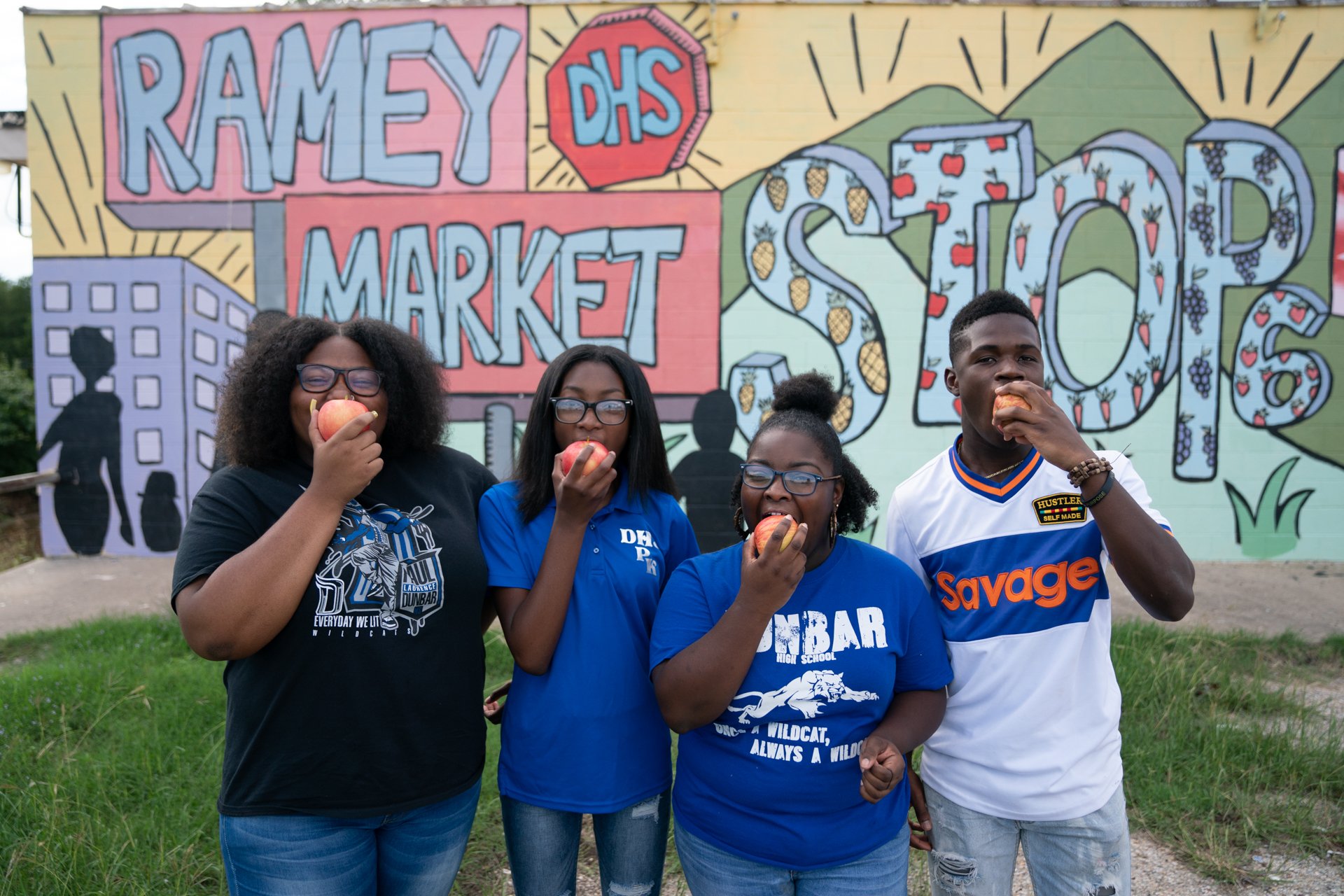Numerous community partners, including Blue Zones Project, are working in schools, community centers, faith-based organizations, and through policy to help make healthy choices easier for residents of Stop Six. In conjunction with resources from the City of Fort Worth, they aim to improve the vitality of the neighborhood.

The Stop Six neighborhood in Fort Worth is one of the city’s oldest and most historic. But, in recent years, this proud community has faced challenges. The unemployment rate is two-and-a-half times the city average, and some 78 percent of the population falls into low- or moderate-income categories. It has also been identified as a “food desert” and has little access to walking trails or community parks.
A coalition of various community organizations and initiatives, including Blue Zones Project, are working to change that. Together they’re implementing programs that focus on enhancing pedestrian safety, improving neighborhood aesthetics, eliminating barriers, increasing access to healthy foods, providing funding for much-needed infrastructure improvements, and leveraging additional public and private investment.
The City of Fort Worth selected Stop Six as the pilot for a revitalization program focused on strengthening vulnerable neighborhoods and invested some $2.56 million in infrastructure and community improvements. One of the most visible elements of that investment is Ralph J. Bunche Park. The park was once a focal point of activity and social connections for the neighborhood but was abandoned in the 1970s. Residents had consistently asked for the park to be redeveloped.
The city secured $540,000 for the first phase of redevelopment, including trails, a group shelter, benches, picnic tables, and security lighting. Texas Health Resources partnered with Blue Zones Project to donate $86,768 for a new playground and fitness stations. With Phase I now complete, Bunche Park will make moving naturally easier for residents and create an inspiring community meeting place, enhancing social connections and supporting family-first activities.
Next door, transformation is also happening at Ramey Market. Blue Zones Project worked closely with the market to pilot a healthy corner store initiative as a means for providing access to fresh produce and healthier options where grocery stores are lacking. Tactics included removing advertising for tobacco and alcohol products and emphasizing and stocking healthier items. Ramey Market now looks and feels more like a neighborhood grocery than a convenience store. The makeover included fresh paint inside and out, new display cases, and attractive signage promoting the benefits of fresh fruits and vegetables throughout. Outside, a colorful mural painted by art students from nearby Dunbar High School also encourages healthy eating and neighborhood pride.
Continued progress, including increased activity levels, social connectedness, and community pride, are expected in the months and years ahead.